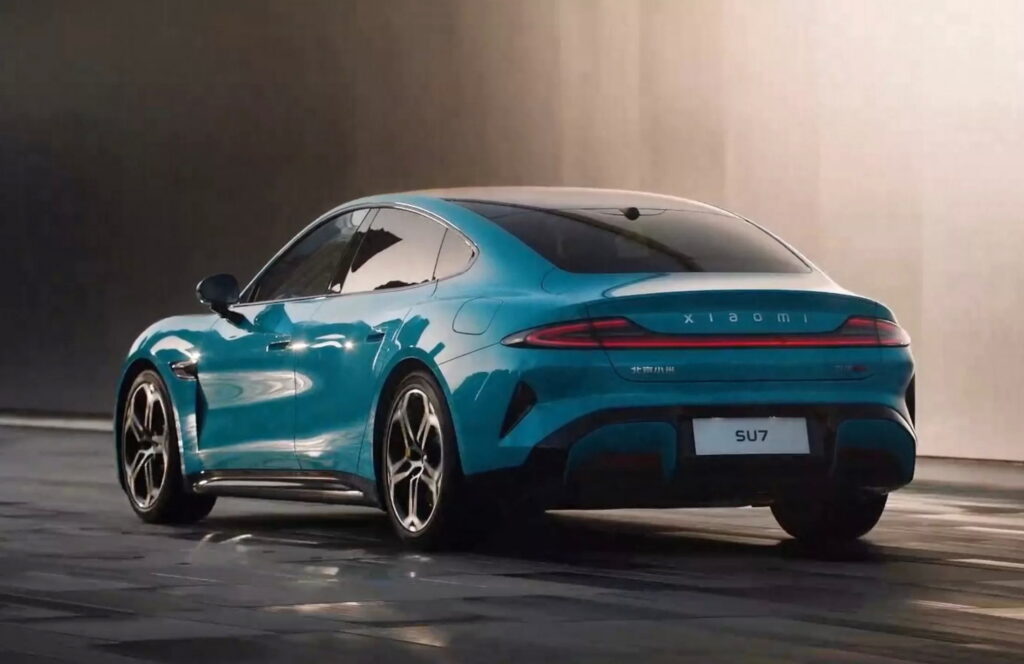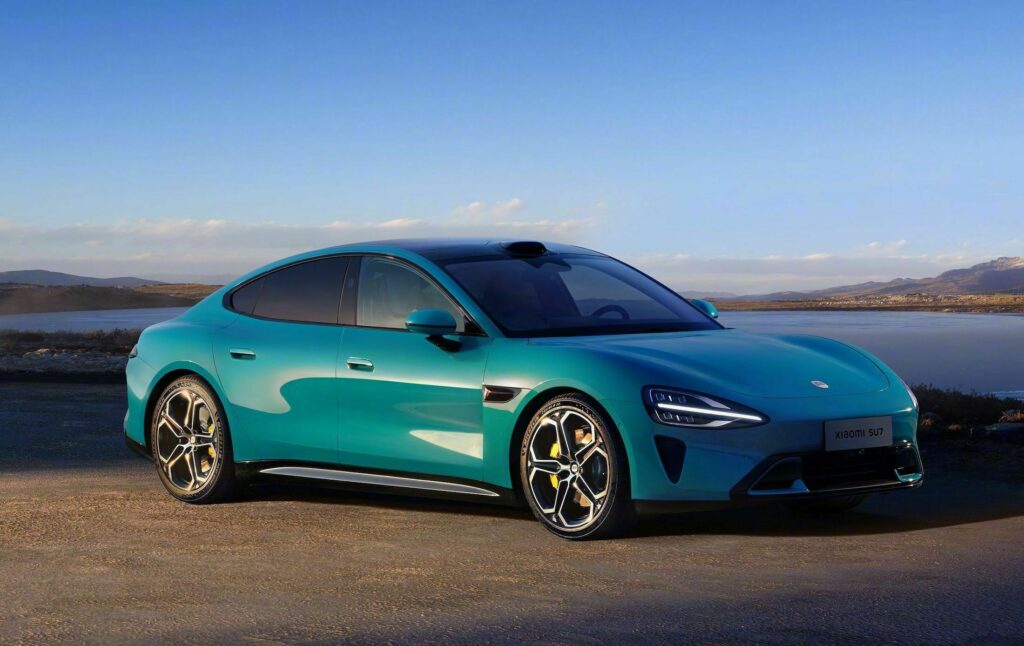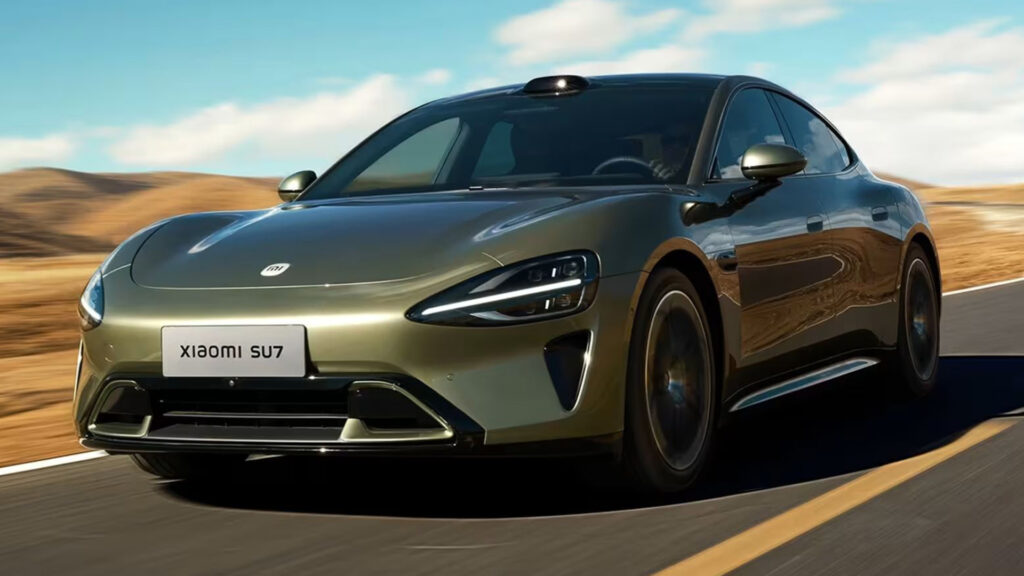- The tech giant received 50,000 orders for the electric sedan within 27 minutes.
- Customer deliveries of the Founder’s Edition started late last month.
- Xiaomi will start to hand over flagship SU7 Max models to owners this month.
The chief executive of Xiaomi has admitted that there is much higher demand for the all-electric SU7 than they anticipated.
While Xiaomi is new to the car business, it is a technology giant in China and one of the world’s largest smartphone manufacturers. The brand’s popularity has given it a significant advantage over other new entrants to the EV space. While speaking during a livestream of Douyin, chief executive Lei Jun said that the orders for their first car have already been 3 to 5 times higher than expected.
Read: Xiaomi SU7 Will Outrun A Porsche Taycan And Outlast A Tesla Model S
A key reason why the SU7 is proving to be so popular is its price. It starts at the equivalent of just $29,900, undercutting the locally-made Tesla Model 3 by $4,000. The firm has previously claimed to have received 50,000 orders within 27 minutes and started deliveries in late March. The first 5,000 units delivered were ‘Founder’s Edition’ models. Deliveries of the standard model started this week in Beijing and Shenzhen.
During the livestream, Lei said Xiaomi had been able to bring forward deliveries of the standard SU7 by 12 days. He added that the car’s software will also be updated over-the-air at least once a month. Reuters understands that Xiaomi will start deliveries of the flagship SU7 Max later this month while the mid-range SU7 Pro will reach customers in May.

Xiaomi has acknowledged that it expects to lose money on each SU7 it sells. While it hasn’t revealed the exact amount per car, Citi analysts believe the sedan may generate a net loss of 4.1 billion yuan (566 million) if 60,000 units are built this year. This amounts to 68,000 yuan (~$9,400) for each car sold.
Lei was asked if Xiaomi is planning an SUV but did not respond. A recent report claims that the development of an SUV is already underway, using a new platform that supports a range-extender option.




